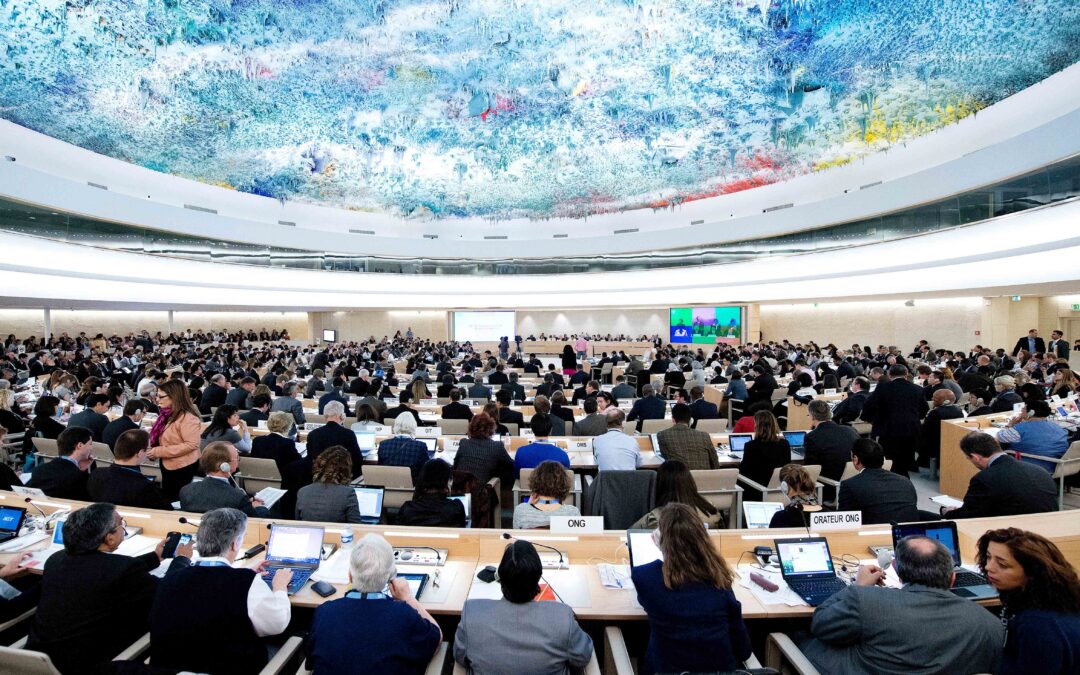
Jun 23, 2022 | Advocacy, Non-legal submissions
The ICJ today called on the UN Human Rights Council to establish an independent monitoring mechanisms on Egypt and denounced several cases of extrajudicial executions in the country.
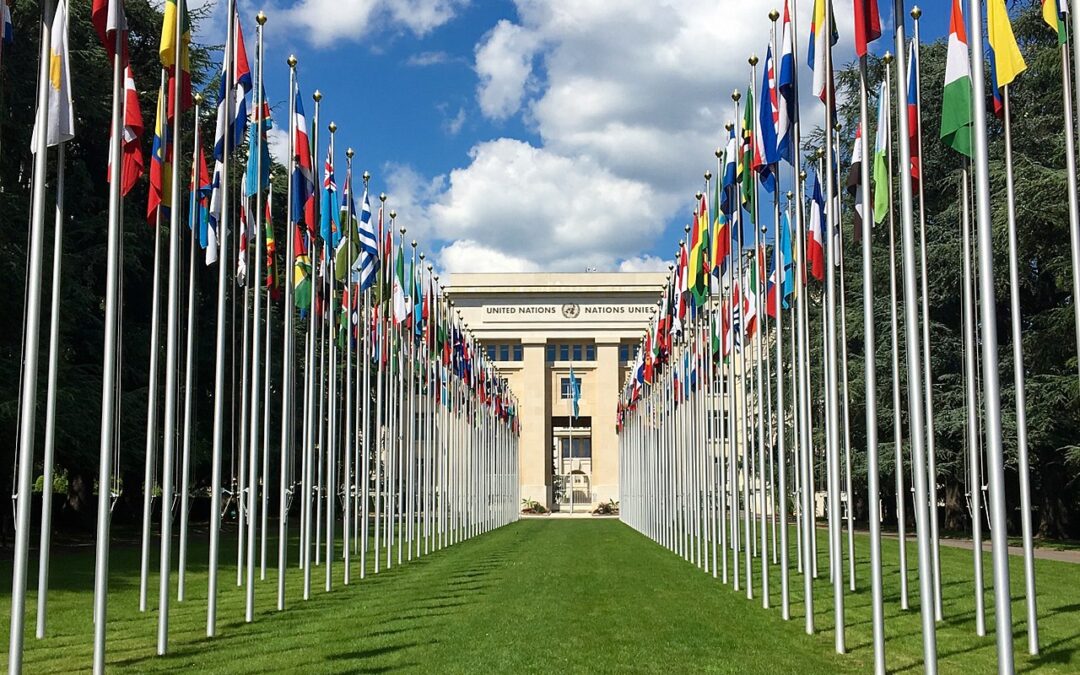
Oct 5, 2020 | Advocacy, Non-legal submissions
The ICJ today joined other NGOs in expressing concern that the Human Rights Council is poised to fail to adequately respond to the human rights crisis in the Philippines, and urging stronger action.
The statement, which was delivered by the World Organization against Torture (OMCT) on behalf of the group of NGOs in a general debate on item 10, read as follows:
“On behalf of 15 organisations, including colleagues in the Philippines, we are deeply disappointed that the draft Item 10 resolution on the Philippines fails to reflect the gravity of the situation, including as documented in the OHCHR report.
Colleagues from the Philippines have tirelessly advocated for an international investigation, at great personal risk. The thousands of victims of killings and other violations and their families continue to be deprived of justice.
This is a collective failure by the States at this Council. We are shocked by the lack of support for a more robust response.
We acknowledge the rationale presented for constructive engagement with the Government of the Philippines. However, an approach based purely on technical cooperation and capacity-building has no realistic prospect of meaningful impact with a government that denies the true scale and severity of the human rights violations, has publicly endorsed the policy of killings, avoids independent investigations, and continues to crack down on civil society.
Despite the shortcomings of the resolution, it at least keeps the situation on the agenda for the next two years and allows for robust reporting by the OHCHR on the situation – including the implementation, or lack thereof, of OHCHR report recommendations. The Council must follow developments closely and be ready to launch an independent investigation if the killings and the crackdown on civil society do not immediately end and prosecution of perpetrators is not pursued.
I thank you.”
- Alyansa Tigil Mina (ATM)
- Amnesty International
- Asian Forum for Human Rights and Development (FORUM-ASIA)
- CIVICUS
- Ecumenical Voice for Human Rights and Peace in the Philippines (EcuVoice)
- Franciscans International
- Harm Reduction International
- Human Rights Watch
- iDefend
- International Commission of Jurists (ICJ)
- International Federation for Human Rights (FIDH)
- International Service for Human Rights (ISHR)
- KARAPATAN
- Philippine Alliance of Human Rights Advocate (PAHRA)
- World Organisation Against Torture (OMCT)
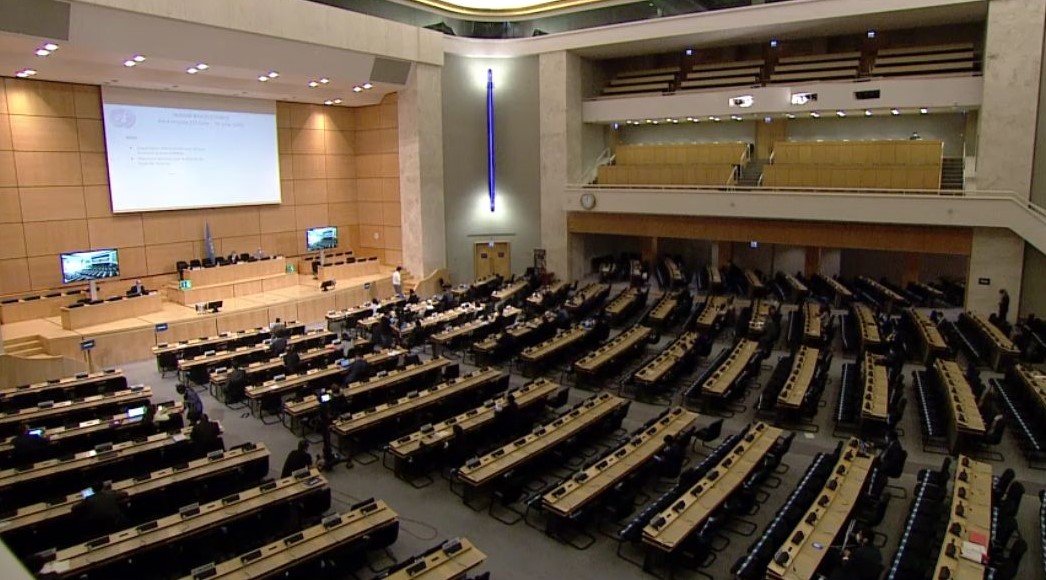
Sep 25, 2020 | Advocacy, Non-legal submissions
The ICJ has joined other NGOs in urging the UN Human Rights Council to respond effectively to the crisis for human rights in the Philippines.
The joint oral statement was delivered by the World Organization against Torture (OMCT) on behalf of the group of international and Philippino NGOs, during a general debate on country situations. It read as follows:
“Madam President,
I speak on behalf of 35 organisations, deeply concerned by the situation in the Philippines. We urge this Council to respond credibly to the grave findings and recommendations of the recent OHCHR report.
Developments since that report indicate further deterioration, with ongoing incitement to kill by the President, the promotion of an architect of the anti-drug strategy to police chief, the passing of an overbroad anti-terror law ripe for abuse, the conviction of journalist Maria Ressa and shutdown of media network ABS-CBN, the murder of activists and a journalist and a new spike in police killings.
In terms of cooperation, the Philippines refused access to OHCHR in the preparation of the report and continues to bar entry to Special Procedures. The Secretary-General and High Commissioner have raised significant concerns over reprisals. The Government does not acknowledge widespread and systematic killings as a problem, in fact it encourages them and rejects the OHCHR’s findings. Serious violations continue.
The Government’s announced Inter-Agency Panel lacks any transparency and directly involves branches of Government implicated in these abuses. As such, it clearly cannot satisfy international standards of independence,[1] nor can it be seen as credible or safe for victims to engage with.
Madam President,
Our organisations have urged and continue to urge this Council to launch an independent international investigation.
The High Commissioner has clearly asked the Council to renew her mandate to monitor and report on the wider situation, as well as to provide technical cooperation to “implement the report’s recommendations,” and “continue to pursue accountability”. We urge this Council – at absolute minimum – to ensure continued monitoring and reporting on all aspects of the situation as clearly recommended by the High Commissioner. Anything less would not only be an insult to victims and their families, but send a green light to perpetrators that they can continue with impunity, with disastrous consequences on the ground.
Thank you.”
Co-signatories:
- Action Network Human Rights Philippines (AMP)
- Amnesty International
- Article 19
- Child Alert Mindanao
- Children’s Legal Rights and Development Center (CLRDC)
- CIVICUS Alliance
- Coalition Against Summary Executions
- Families of Victims of Involuntary Disappearance (FIND)
- Franciscans International
- Franciscan Sisters of the Immaculate Conception
- Free Legal Assistance Group (FLAG)
- Freedom House
- Harm Reduction International
- Human Rights Watch
- In Defense of Human Rights and Dignity Movement (iDEFEND)
- International Coalition for Human Rights in the Philippines (ICHRP)
- International Commission of Jurists
- International Drug Policy Consortium
- International Federation for Human Rights (FIDH)
- International Service for Human Rights
- Karapatan Alliance Philippines
- Medical Action Group
- National Union of Journalists of the Philippines
- Network Against Killings in the Philippines (NakPhil)
- Partnership Mission for People’s Initiatives (PMPI)
- Philippine Alliance of Human Rights Advocates (PAHRA)
- Philippine Misereor Partnership Inc. (PMPI)
- Philippine Human Rights Information Center
- Salinlahi Alliance for Children’s Concerns
- Swiss Catholic Lenten Fund (SCLF)
- Tambayan
- The Asian Forum for Human Rights and Development (FORUM-ASIA)
- Task Force Detainees of the Philippines
- World Council of Churches
- World Organisation Against Torture (OMCT)
[1] See for instance the UN Principles on the Effective Prevention and Investigation of Extra-legal, Arbitrary and Summary Executions, adopted by the Economic and Social Council in its resolution 1989/65 of 24 May 1989; and Human Rights Committee, General Comment no. 36 on the right to life (article 6).
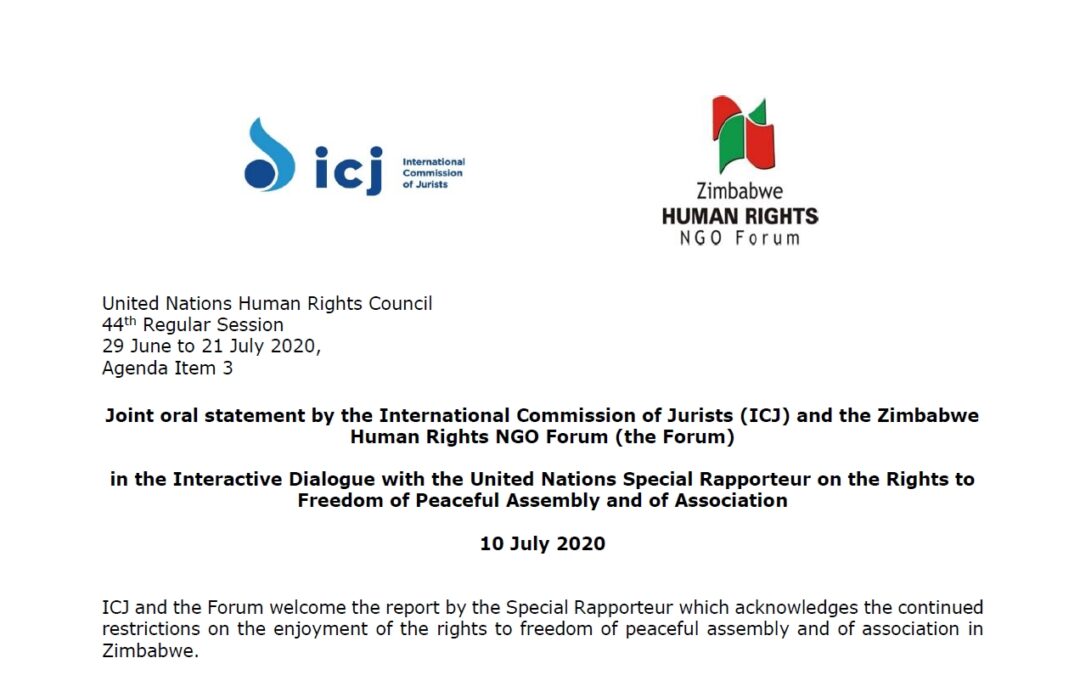
Jul 10, 2020 | Advocacy, Non-legal submissions
The ICJ and the Zimbabwe Human Rights NGO Forum highlighted today concerns on freedom of association and assembly in Zimbabwe, on the occasion of discussion by the Human Rights Council of a report of the relevant UN expert’s visit to the country.
The statement was prepared for delivery in an oral interactive dialogue with the UN Special Rapporteur on freedom of association and assembly on his reports to the Human Rights Council, including the report of his visit to Zimbabwe in September 2019.
The statement could not actually be read aloud due to the limited time for civil society statements in the dialogue.
The joint statement reads as follows:
“ICJ and the Forum welcome the report by the Special Rapporteur which acknowledges the continued restrictions on the enjoyment of the rights to freedom of peaceful assembly and of association in Zimbabwe.
The report mentions the use of excessive and lethal force by security forces; the use of military forces in managing protest; and the subsistence of repressive laws that curtail the enjoyment of the rights to Freedom of assembly and association.
ICJ and the Forum agree with the findings by the Special Rapporteur that the use of disproportionate and excessive force by the security has resulted in massive violations against protestors. In January 2019 following the “shutdown protests”, the Forum documented at least 1800 violations including 17 killings, 16 cases of rape and 81 victims were treated for gunshot wounds while ICJ documented at least 77 incidences of violation of fair trial rights of protestors.
The Maintenance of Peace and Order Act [Chapter 11:23] (MOPA) was enacted into law in November 2019 to repeal the Public Order and Security Act (POSA). MOPA reveal common similarities with POSA and maintains problematic provisions that do not guarantee the right to peaceful assembly.
ICJ and the Forum wish to draw the attention of the Special Rapporteur to the ongoing violations which have escalated in the context of the COVID-19 lockdown enforcement and the declining economic and social situation in Zimbabwe. While public health measures are crucial, these must be advanced in ways that do not unduly infringe on the rights to freedom of peaceful assembly and of association.
The government of Zimbabwe must be encouraged to comply with International human rights standards and guidelines such as the Guidelines for the Policing of Assemblies by Law Enforcement Officials in Africa; the United Nations Basic Principles on the Use of Force and firearms by law enforcement officials and the 10 principles for the Proper Management of Assemblies developed by the mandate in 2016.
ICJ and the Forum would to like to ask the SR what follow up he will do to monitor whether the Government of Zimbabwe complies with its international human rights obligations?”
The statement can be downloaded in PDF format here: UN-HRC44-statement-SRFoAA-2020
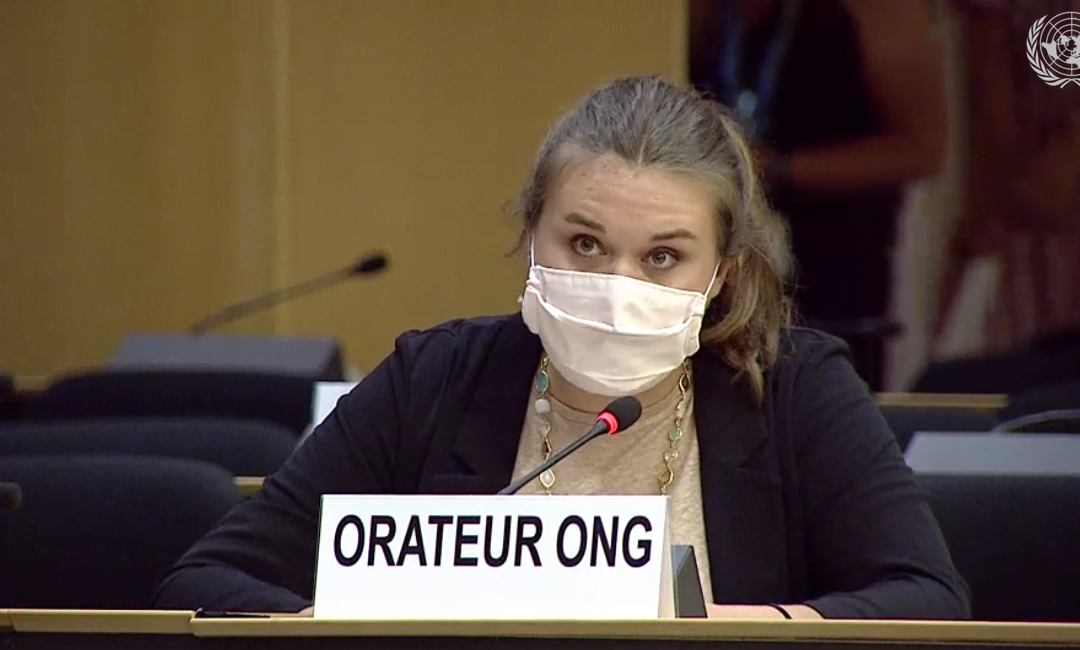
Jun 30, 2020 | Advocacy, Non-legal submissions
Speaking at the UN Human Rights Council today, the ICJ urged action on longstanding and pervasive impunity for human rights violations in the Philippines and highlighted new threats posed by a pending new counter-terrorism law.
The oral statement, delivered in an interactive debate on the human rights situation in the Philippines based on a report prepared by the High Commissioner for Human Rights, read as follows:
“Madame President,
The International Commission of Jurists (ICJ) concurs with the High Commissioner’s finding that overemphasis by the Government of the Philippines on national security and public order has led to serious human rights violations (A/HRC/44/22, para 12). Such violations will only increase if the draft Anti-Terrorism Act is approved and implemented.
The draft law would, for example, allows detention without judicial warrant for up to twenty-four days. Such prolonged pretrial detention without judicial review This is inconsistent with the prohibition of arbitrary detention under the International Covenant on Civil and Political Rights (ICCPR), and the right under the ICCPR of anyone arrested or detained on criminal grounds to be brought promptly before a judge. The Human Rights Committee has stressed that such judicial control of initial detention periods is not only essential to guarantee the right to liberty but also to prevent torture, other ill-treatment, and enforced disappearance.
In line with both the High Commissioner’s report and the 25 June 2020 statement by a large number of Special Procedures, the ICJ urges the Government of the Philippines to accept the findings and recommendations and rapidly implement corrective measures, in cooperation with the OHCHR, civil society, and the Commission on Human Rights, and to abandon or fundamentally revise the draft Anti-Terror Law. In the absence of clear, effective and measurable progress on accountability at the national level, this Council must stand ready to establish an independent international investigation (para 88(iii)).
Thank you.”









